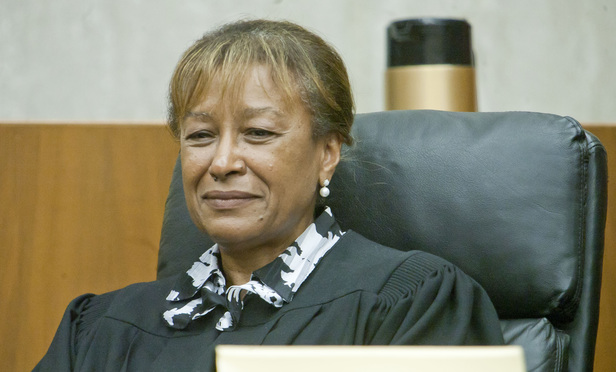The 2-1 decision from the U.S. Court of Appeals for the D.C. Circuit allows the use of the controversial practice, known as cy pres, in a decades-old class action discrimination case. The majority opinion, written by Judge Harry Edwards Tuesday, upheld the District Court’s approval of a revised settlement agreement to distribute the bulk of the $380 million in unclaimed compensation funds to nonprofits working with American Indian farmers.
But Judge Janice Rogers Brown, in a red-hot dissent, wrote that only Congress has the power to distribute government funds — not the courts — and that the leftover money should be returned to the Treasury.
“Cy pres permits the judiciary to take more than half the taxpayer money Congress authorized to pay claims in this case and appropriate the money for something else,” Brown wrote. “This is not justice. It is not even law.”
The majority opinion in this case did not address the legality of cy pres because the plaintiffs never raised the issue in the lower court, Edwards wrote. And Brown’s dissent does not inherently side with the appellants, who want all of the remaining funds to be distributed to successful class action claimants.
But Brown wrote that allowing the executive branch to direct money from the Treasury violates the promise of the Constitution’s appropriations clause that only Congress has the power to disburse money.
“Perhaps one day, I will possess my colleagues’ schadenfreude toward the Executive Branch raiding hundreds-of-millions of taxpayer dollars out of the Treasury, putting them into a slush fund disguised as a settlement, and then doling the money out to whatever constituency the Executive wants bankrolled. But, that day is not today,” Brown wrote.
Judge Robert Wilkins, in a concurring opinion, criticized Brown’s dissent. He wrote the settlement was reached via the rule of law and good-faith negotiations.
“The dissent spins a tale of corruption and conspiracy, in which the plaintiffs and the Government were complicit in bilking the nation’s taxpayers to pay a political ransom,” Wilkins wrote.
The use of cy pres settlements has met with mixed support from circuit courts, and judges have been quick to blast the agreements when most or all settlement funds go to a charity, leaving little or nothing for class members.
Joseph Sellers, a partner at Cohen Milstein Sellers & Toll who represents the underlying class of farmers, said he doesn’t think the use of cy pres in this case is something to be concerned about.
“The successful claimants got somewhere between $50,000 and $250,000 a piece,” Sellers said. “That’s hardly a situation where what they received was negligible or nothing.”
The lawsuit, Keepseagle v. Perdue, was originally filed in 1999 and accused the U.S. Department of Agriculture of discriminating against American Indian farmers and ranchers when processing loan applications. A decade of litigation followed, and a $680 million settlement was reached in 2011.
But more than half the money was leftover once the claims were processed, and a provision in the settlement called for those funds to be distributed to nonprofit organizations that serve Native American farmers. The plaintiffs’ lawyers initially expected a fraction of the settlement would remain, so they sought to renegotiate with USDA.
The district court in D.C. approved a revised settlement reached by the class counsel and the government in April 2016. It gives some of the money back to claimants, some will go to the nonprofits right away, and roughly $265 million will go to a trust to be distributed to nonprofits over time.
Two members of the class were unhappy with the revised agreement and appealed the district court’s decision last June.
They’re now considering options to appeal the D.C. Circuit’s decision, too. A lawyer for one of the appellants, William Sherman of Dinsmore & Shohl, declined to say whether they will submit a petition for an en banc review, or submit a writ of certiorari to the U.S. Supreme Court. But Sherman did say there are “plenty of issues for appeal.”
Attorney Donivon Craig Tingle, the other appellant who represented himself, said he plans to petition the high court, saying the original agreement was supposed to give the leftover money to charity on the assumption it would be a residual amount.
“$380 million? No one could ever consider that to be residue,” Tingle said.
The Justice Department did not immediately return a request for comment.
Sellers said he hopes the case has come to a close since the leftover money continues to sit unused. The money will continue to sit unused if an appeal moves forward.
“I hope, in the end, this is the last chapter and we can put aside the differences that divided people before. It’s a lot of money, and I think it makes an enormous difference,” Sellers said.




